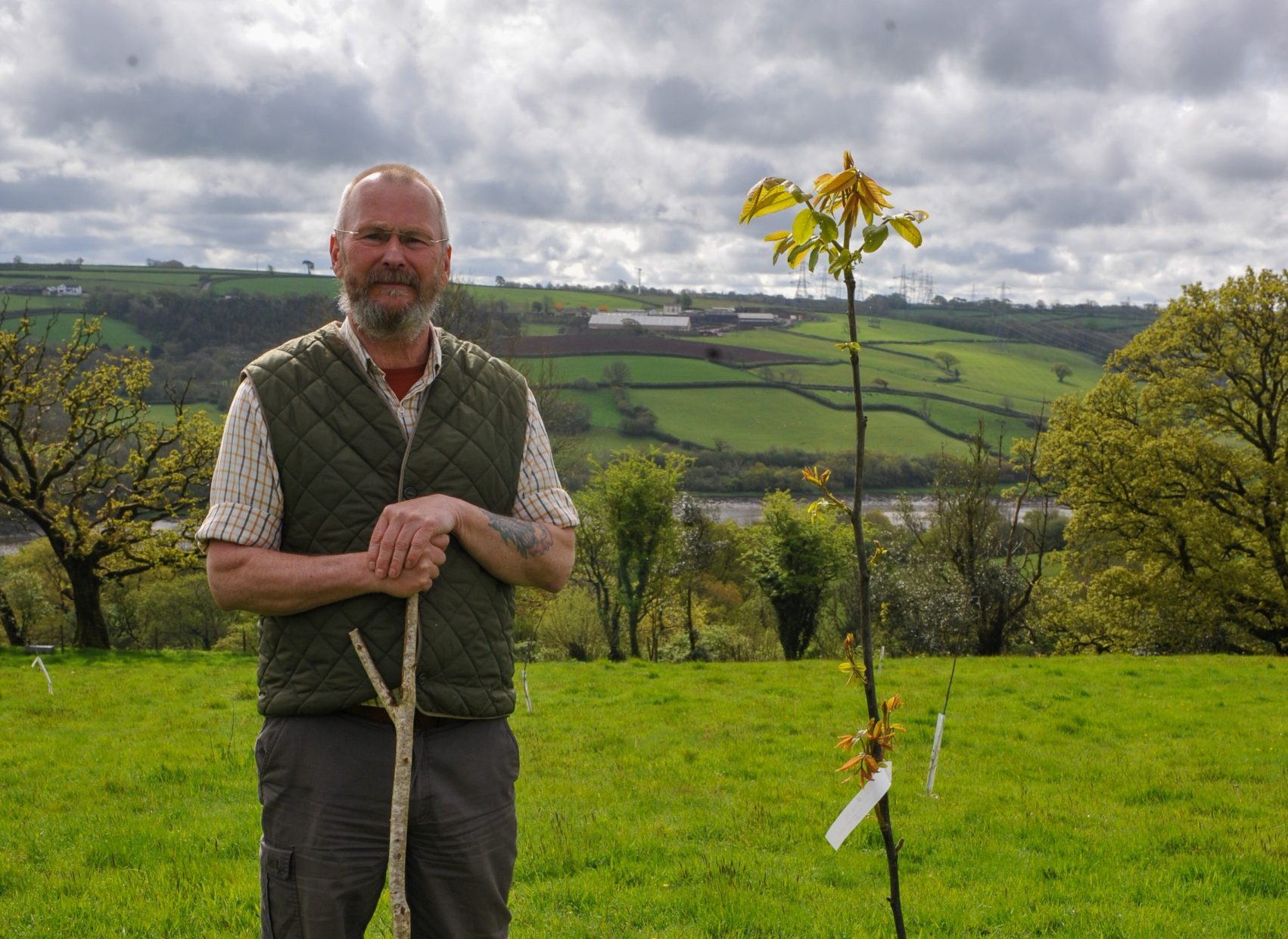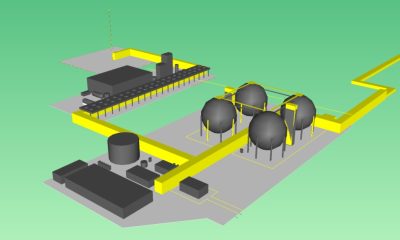Farming
Flood hit farmers can apply for £35,000 grant
 Farmers who were affected by flooding can now apply for grants of up to £35,000 to help get their land back into production as quickly as possible. Farmers can now apply for the larger grant under phase two of the Farming Recovery Fund. The deadline for applications is 27 June 2014.
Farmers who were affected by flooding can now apply for grants of up to £35,000 to help get their land back into production as quickly as possible. Farmers can now apply for the larger grant under phase two of the Farming Recovery Fund. The deadline for applications is 27 June 2014.
We have already been taking bids for grants of up to £5,000 as part of phase one of the £10 million fund which was announced in February. However, we have kept money in reserve for the worst affected farmers who needed longer to assess the extent of flood damage once the land had dried out. Farmers who have already applied for the first grant can also apply for the second larger grant, up to a collective total of £35,000. Environment Secretary Owen Paterson said: “Our farming industry contributes billions of pounds to the UK economy every year. We want to see those farmers affected by flooding get back to business as soon as possible.” “We have simplified the application process, making it quicker and easier for farmers in need of support to receive up to £35,000 to get their land back into production.” The intention to increase the fund was announced by Owen Paterson on a visit to a flood affected farm on the Somerset levels earlier this month. Among the changes made to improve the process is scrapping the need for three quotes for a number of commonly requested items, such as grass seed and fencing, and a list of maximum guide prices will be used instead. We have been turning around all application forms within two weeks of them being received and will continue to offer this rapid turnaround. NFU President Meurig Raymond said: “This funding is essential to help cover the costs of restoring damaged land following the unprecedented storms this winter, which have also had an enormous impact on so many people’s livelihoods. “We are especially pleased to see that a list of standard costs will be used and that Government is committed to and is delivering such a fast turnaround so communities – both of which will speed up the help provided.”
Farming
Nut trial looks at viability of producing walnuts in West Wales

A WEST WALES couple are experimenting with growing nuts on their land.
Martyn Williams and Alison Harwood have planted walnut and sweet chestnut trees on a one-hectare south facing slope overlooking the River Towy.
They have chosen varieties that are a good match for conditions at Old Castle Farm, Llangain, Carmarthenshire.
Nuts are being grown commercially more than ever in the UK as the climate heats, making products more economically viable, but what is less understood is how well suited this enterprise is to weather conditions in west Wales, or the free-draining and slightly acidic loam soils at Old Castle Farm.
To examine this, Martyn and Alison have been awarded funding from the Farming Connect ‘Try Out Fund,’ an initiative that makes provides funding to individuals and groups of farmers and growers to experiment with ideas and bring them to life.
They have planted 20 walnut trees and 20 sweet chestnut trees, varieties selected for growth characteristics matched to the latitude in this region.
Establishment is now being monitored and, to give the trees the best chance to thrive, the area around them is being kept weed-free to prevent competition for nutrients and moisture.
The plan is to explore the use of alternative mulches, such as wool, even shells from a local beach, to balance the soil temperature and retain moisture.
Nut trees are helpful for providing biodiversity on farms but compared to other European regions, Wales has a very small economy in food production from trees.
Climate change coupled with proposed changes to the Welsh government farming policy means that alternative types of food production need to be investigated.
Martyn is grateful to Farming Connect and the Try Out Fund for helping to bring the project at Old Castle Farm to life.
“It has given us a bit of a free rein, taking the pressure off trialling an enterprise that might or might not be viable.’’
It is likely to be five years before the trees produce any quantity of nuts, if indeed they do, but Martyn says planting trees is as much a legacy for future generations as the pleasure they bring to the current one.
“I love planting trees, they could be around for hundreds of years, long after we have gone. I get that farmers need to produce food to feed us but this will be our legacy.’’
Farming
Welsh farmers urged to be vigilant for signs of Bluetongue

WALES’ Chief Veterinary Officer has urged farmers in Wales to be alert to signs of Bluetongue as we enter a period where animals are at an increased risk of contracting Bluetongue virus from midges.
Bluetongue does not affect people or food safety. The virus is primarily transmitted by midge bites and affects cattle, goats, sheep and camelids such as llamas, and midges are most active between April and November.
Bluetongue is a notifiable disease, so any suspect cases must be reported to the Animal and Plant Health Agency (APHA).
The impacts on susceptible animals can vary greatly – some show no clinical signs or effects at all, for others it can cause productivity issues such as reduced milk yield or reproductive losses, while in the most severe cases can be fatal for infected animals.
Farmers can help prevent the disease by:
- responsibly source livestock
- practicing good biosecurityon your premises
- remaining vigilant
Keepers considering importing animals or biological products, for example germinal products , from BTV affected countries or out of disease control zones should consult their vet to check if this is permitted, and on the risks of doing so. This should always be done before deciding to import or move animals.
All businesses should have a contingency plan for both responding to disease outbreaks on their premises and if they might be in a disease control zone. Contingency plans should include details of where animals are normally slaughtered to check that abattoir is designated.
Richard Irvine, Wales’ Chief Veterinary Officer, said: “As we enter this period where animals are more at risk from Bluetongue from midges, I would urge all keepers to take action now to protect their herds and flocks to keep disease out, be aware of how to spot Bluetongue and report any suspected cases immediately”.
“Wales has never had a case of Bluetongue – but – with past cases in England and in Europe we are encouraging people to be vigilant and prepared for Bluetongue to strike again.”
Your local Animal and Plant Health Agency (APHA) office should be contacted immediately on 0300 303 8268 if you suspect Bluetongue in your animals. APHA vets will investigate suspected cases.
Further information and resources on the current bluetongue situation are also available on the Ruminant Health and Welfare website.
Farming
Langdon Mill Farm lodges plans for big new development

One of Pembrokeshire’s largest dairy farms, which has a 2,000-strong dairy herd, has submitted a scheme for new calf buildings to “reduce reliance on third-party farms”.
Hugh James of Langdon Mill Farms Ltd has applied for permission for a calf building and weaned calf building, and associated yard areas, at Langdon Mill Farm, near Jeffreyston, Kilgetty.
A supporting statement, through agent Reading Agricultural Consultants, said: “Langdon Mill Farm is a dairy unit extending to approximately 1,215ha, comprising 283ha owned land and 730ha rented, located approximately 1km north of the village of Jeffreyston.
“A further 162ha is used by the business to spread slurry under informal agreements. The holding currently has a milking herd of approximately 2,000 cows, which are housed indoors for the majority of the year, with dry cows [cows that are not lactating, prior to calving] and heifers grazed outdoors when weather and soil conditions permit.
“There has been significant investment in buildings and infrastructure at the farm over the last decade in respect of cattle accommodation, slurry storage, milking facilities, Anaerobic Digestion (AD) plant and feed storage. The unit is efficient, achieving yields of more than 10,000 litres/cow/year, with cows being milked three times/day in the 60-point rotary parlour.
“Langdon Mill Farm currently directly employs 21 full-time, and three part-time staff (including the applicants). Of these, four live on site in the two dwellings opposite the farm, with the remaining staff living in the locality.”
urrently, calves are reared at Langdon Mill Farm for two months before being transported off-site to be reared at a number of third-party farms in the area.
At 22 months the in-calf heifers are brought back to the maternity building to calve, and then are introduced into the milking herd.
The proposed 61.2m long calf building is required to accommodate young-stock, following separation from the cows, to two-months, with the 164.8m weaned calf building to be used for calves from two months to seven months. Following the construction of the new calf accommodation, the existing building would be used for machinery and straw storage.
Currently, weaned calves are transported by tractor and cattle trailer to be reared at a farm in Cresselly, approximately 2.4km from Langdon Mill Farm.
The application says the proposals would “clearly make the enterprise more financially robust by reducing reliance on third party farms,” adding: “Despite the scale of the new buildings, their relationship to the existing dry cow/maternity building and proposed anaerobic digestion plant would ensure that landscape impact associated with the proposed development would not be significant.”
The application will be considered by planners at a later date.
-

 News6 days ago
News6 days agoBeautiful, funny and lovely: Family pay tribute to Sian Batchelor
-

 Community10 hours ago
Community10 hours agoTragic passing Josh, 28, mourned by Milford Haven community
-

 Community2 days ago
Community2 days agoJoy as Willow rescued by coastguard after 12-day ordeal
-

 Community7 hours ago
Community7 hours agoLucy’s sudden passing at just 38 leaves a community in mourning
-

 Business3 days ago
Business3 days agoDragon LNG explores integration of LNG and CO2 liquefaction processes
-

 News5 days ago
News5 days agoBody recovered confirmed to be Luke Stephenson, say police
-

 Crime12 hours ago
Crime12 hours agoDrunk digger driver remanded for hurling racial abuse at neighbours
-

 News2 days ago
News2 days agoMilford Haven RFC celebrates Mini’s Section Presentation
























